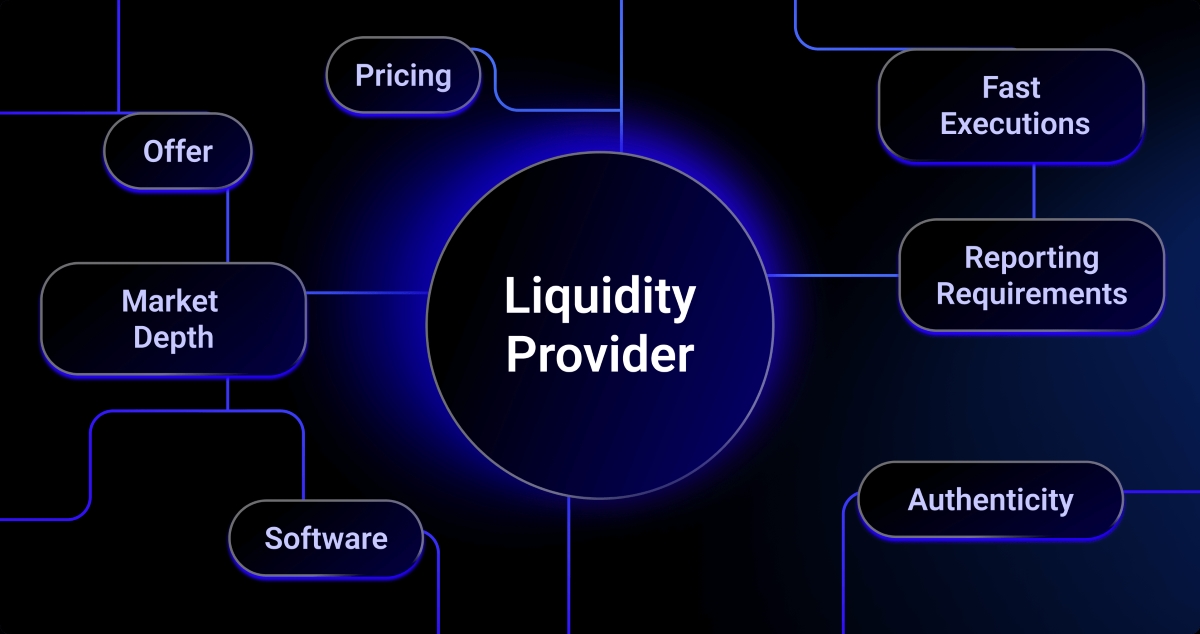

Finance
Who Offers Bridge Loans?
Published: February 18, 2024
Looking for bridge loans? Find the best finance options from reputable lenders. Get the funds you need quickly and easily. Apply now!
(Many of the links in this article redirect to a specific reviewed product. Your purchase of these products through affiliate links helps to generate commission for LiveWell, at no extra cost. Learn more)
Table of Contents
Introduction
Introduction
Bridge loans are short-term loans that provide immediate capital for individuals or businesses to meet their current financial obligations. These loans act as a “bridge” to cover expenses or financial gaps until a more permanent financing solution is secured. They are especially useful in real estate transactions, where they can facilitate the purchase of a new property before the sale of an existing one. When seeking a bridge loan, it’s essential to explore various options to find the best fit for your specific needs.
Understanding who offers bridge loans is crucial for anyone in need of such financing. From traditional banks to online lenders, private lenders, and mortgage brokers, there are several avenues to explore when seeking a bridge loan. Each option comes with its own set of advantages and considerations, making it important to weigh the pros and cons before making a decision.
In this article, we will explore the different sources of bridge loans, shedding light on the distinctive features and benefits offered by each. By the end, you will have a comprehensive understanding of the various providers and be better equipped to make an informed choice when seeking a bridge loan.
Traditional Banks
When it comes to obtaining a bridge loan, traditional banks are often the first option that comes to mind for many borrowers. These established financial institutions offer a sense of security and reliability, which can be appealing to those in need of short-term financing.
One of the key advantages of obtaining a bridge loan from a traditional bank is the potential for lower interest rates. Banks may offer competitive rates to borrowers with strong credit profiles and a history of financial stability. Additionally, working with a bank for a bridge loan can provide a streamlined and familiar experience for individuals who already have existing accounts or relationships with the institution.
However, securing a bridge loan from a traditional bank may come with its own set of challenges. Banks typically have stringent lending criteria and may require extensive documentation and collateral to approve a bridge loan. The application process can be time-consuming, and the approval timeline may not align with the urgent nature of bridge financing needs.
Furthermore, traditional banks may be less flexible when it comes to accommodating unique or unconventional financial situations. Borrowers who do not meet the standard eligibility criteria or require a more customized approach to their bridge loan may find it challenging to navigate the rigid structures of traditional banking institutions.
It’s important for borrowers to carefully weigh the pros and cons of obtaining a bridge loan from a traditional bank and to explore alternative options that may better suit their specific circumstances and timelines.
Online Lenders
As technology continues to reshape the financial landscape, online lenders have emerged as a popular alternative for individuals and businesses seeking bridge loans. These digital lending platforms offer a convenient and efficient way to access short-term financing, often with streamlined application processes and quick approval timelines.
One of the primary advantages of working with online lenders for a bridge loan is the speed and accessibility they offer. Borrowers can complete the entire application process online, from submitting documentation to receiving approval, without the need for in-person visits to a physical branch. This can be particularly beneficial for those who require immediate funding and value a hassle-free application experience.
Additionally, online lenders may be more inclined to consider a broader range of financial circumstances when evaluating bridge loan applications. This flexibility can be advantageous for borrowers with unique financial profiles or those who may not meet the strict criteria of traditional banks. Some online lenders specialize in serving niche markets or catering to specific borrower needs, offering tailored solutions that may not be readily available through traditional banking channels.
However, it’s important for borrowers to exercise caution and due diligence when considering online lenders for bridge loans. Not all digital lending platforms are created equal, and some may operate with less stringent regulations than traditional banks. It’s crucial to research and verify the credibility and legitimacy of any online lender before engaging in a financial transaction.
While online lenders can offer speed and flexibility, borrowers should carefully review the terms and conditions, including interest rates, repayment schedules, and any associated fees, to ensure they align with their financial goals and capabilities. By leveraging the convenience and agility of online lending while maintaining a discerning approach, borrowers can harness the potential benefits of digital bridge loan providers.
Private Lenders
Private lenders play a significant role in the bridge loan market, offering a distinct alternative to traditional banks and online lenders. These individual or institutional investors, as well as private lending firms, provide a unique avenue for securing short-term financing outside the conventional banking system.
One of the key attractions of working with private lenders for bridge loans is the potential for more personalized and flexible lending arrangements. Private lenders may be more open to considering unconventional collateral, accommodating non-traditional sources of income, or tailoring loan terms to meet the specific needs of the borrower. This adaptability can be particularly advantageous for individuals or businesses with complex financial situations that do not align with the standard criteria of traditional lending institutions.
Furthermore, private lenders often offer a streamlined application and approval process, leveraging their autonomy to make swift lending decisions. This agility can be invaluable for borrowers who require rapid access to capital and cannot afford the delays associated with traditional bank loan approvals.
However, it’s essential for borrowers to approach private lenders with a thorough understanding of the associated risks and considerations. Private bridge loans may come with higher interest rates compared to traditional bank loans, reflecting the increased flexibility and tailored nature of the financing. Borrowers should carefully assess the cost implications and ensure that the benefits of working with a private lender align with their overall financial strategy.
Due diligence is paramount when engaging with private lenders, as the absence of regulatory oversight that exists in the traditional banking sector requires borrowers to exercise heightened caution. It’s advisable to seek legal and financial counsel to review the terms of the bridge loan and ensure that the arrangement is transparent, fair, and compliant with applicable laws and regulations.
By exploring the potential offered by private lenders for bridge loans while maintaining a diligent and informed approach, borrowers can tap into a distinct avenue of short-term financing that caters to a diverse range of financial needs and circumstances.
Mortgage Brokers
When seeking a bridge loan, borrowers often turn to mortgage brokers as valuable intermediaries who can facilitate access to short-term financing solutions. Mortgage brokers act as liaisons between borrowers and potential lenders, leveraging their industry expertise and network of connections to identify suitable bridge loan options that align with the specific needs of the borrower.
One of the primary advantages of engaging a mortgage broker for a bridge loan is the access to a diverse array of lending sources. Mortgage brokers typically maintain relationships with various lenders, including traditional banks, private lenders, and alternative financing entities. This broad network enables them to present borrowers with multiple bridge loan options, allowing for comprehensive comparisons and informed decision-making.
Furthermore, mortgage brokers can provide valuable guidance and support throughout the bridge loan application process. Their in-depth understanding of the lending landscape equips them to navigate the complexities of securing short-term financing, ensuring that borrowers are well-informed and positioned to make sound financial choices. Mortgage brokers can offer personalized advice tailored to the unique financial circumstances of the borrower, helping them identify the most suitable bridge loan solution.
It’s important to note that while mortgage brokers offer expertise and access to a wide range of lenders, borrowers should exercise caution and due diligence when engaging their services. It’s advisable to research and select a reputable and licensed mortgage broker with a track record of ethical and professional conduct. Clear communication regarding fees, services, and the terms of engagement is essential to establish a transparent and mutually beneficial working relationship.
By enlisting the assistance of a qualified mortgage broker, borrowers can leverage their industry insights and extensive lender network to navigate the bridge loan landscape with confidence and efficiency. The expertise and guidance provided by mortgage brokers can streamline the process of securing short-term financing, empowering borrowers to make informed decisions that align with their financial objectives.
Conclusion
Exploring the landscape of bridge loan providers reveals a diverse array of options, each offering unique benefits and considerations. Traditional banks provide a sense of stability and potentially lower interest rates, but their stringent criteria and lengthy approval processes may present challenges for some borrowers. Online lenders offer speed and accessibility, catering to those in need of swift financing, yet careful scrutiny of terms and credibility is essential in this digital domain.
Private lenders stand out for their flexibility and personalized approach, accommodating a broader range of financial circumstances, but borrowers must navigate higher interest rates and the absence of regulatory oversight. Mortgage brokers serve as valuable allies, leveraging their extensive lender networks to present borrowers with a variety of bridge loan options and offering expert guidance throughout the application process.
Ultimately, the choice of bridge loan provider hinges on the specific needs, timeline, and financial circumstances of the borrower. Each option presents its own set of trade-offs, and careful consideration of the associated benefits and risks is crucial in making an informed decision.
When seeking a bridge loan, borrowers are encouraged to conduct thorough research, seek professional advice where necessary, and carefully evaluate the terms and conditions offered by various providers. By doing so, they can identify the most suitable source of short-term financing that aligns with their unique requirements and positions them for financial success.
Understanding the landscape of bridge loan providers empowers borrowers to navigate the realm of short-term financing with confidence, enabling them to bridge financial gaps and pursue their objectives with clarity and assurance.














